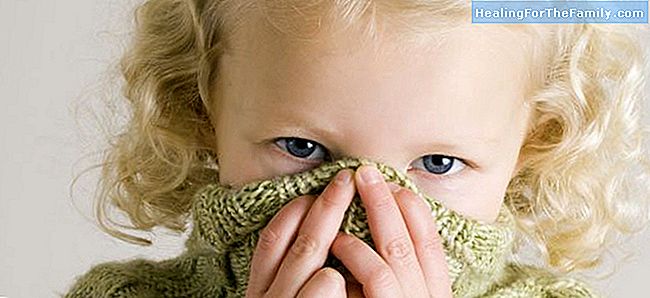When is shyness a problem for children?
It is absolutely undeniable that each child is unique and different. No two are the same. As parents, we know that each child has their own temperament and personality, their way of interacting with the world, their preferences and their tastes right from the moment of birth. Growing up, we observe
It is absolutely undeniable that each child is unique and different. No two are the same. As parents, we know that each child has their own temperament and personality, their way of interacting with the world, their preferences and their tastes right from the moment of birth.
Growing up, we observe how some are more spontaneous and open while others are more shy and withdrawn. Some easily engage in conversations with strangers while others hide behind mom until they manage to break the ice. In this last case, how should parents act? Is it necessary to intervene and modify their way of being or is it preferable to wait and respect their way of being in the world? Intervene, wait, respect? What should we do?
Children's shyness is not a problem

First of all we must understand that shyness in the first years of life should not be considered a problem. Only if, after 6-7 years, the child openly manifests relationship problems with his / her classmates, we should talk to a child psychologist.
As children grow and develop, they acquire different skills and abilities, including socio-emotional ones. Social skills that will allow them to interact with others in a healthy and rewarding way. These, contrary to what we believe, are not innate, we are not born with them, therefore, they can be learned. The best teachers in childhood are the adults of reference (the parents) and of them and with them the children learn to relate to others.
There are many parents who consult about the shyness of their children of 2 or 3 years, of 4 0 of 5, they worry that they do not know how to relate adequately with their classmates in the park or school. They are afraid that they do not know how to defend their interests before others, that they are left out or that they even make fun of it.
This concern is completely normal and understandable since whenever we talk about shy and withdrawn children we do it from the negative point of view, from the need to foster in them the confidence they lack or increase their self-esteem. It is true that we must provide these children with social skills and personal resources so that, in the future, they can relate to others without difficulty, but we must be cautious and respect the times of each child.
Before seeking professional help and intervening, it is necessary to understand that there are children who need more time than others to adapt and interact, that they take their time to feel comfortable and open up to others.
But there are also others who simply choose not to participate in any social activity because they simply do not care. Whatever the case, we must respect their way of proceeding without pressing them to greet, kiss or interact with the grandmother, the teacher or the person on duty who wants to make a grace.
What to do if our child is shy
The answer is to be respectful with their way of being and this means not to force, not to insist, not to force. It means accepting their reactions and not giving importance to their behavior, their refusal to greet or interact with others. It means that you have time to decide if you want to participate or not, to see and observe the situation.
If we do not force, if we do not force, if we do not insist the child who is initially shy and withdrawn will have the opportunity to start the social relationship when he feels prepared. The more we insist the worse, that is why we must avoid: Repro - Reproach, criticize or punish their way of being.
- Scolding for not wanting to give kisses when greeting.
- Answer for him or her when they ask you a question.
- Compare with other children or siblings, because each child is special, unique and unrepeatable.
Accept your child as he is, give him different opportunities for social interaction and respect his times. Children need their time to know how they should act in society.












